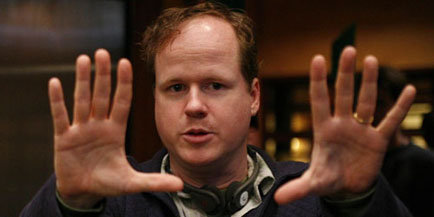|
|
Mythology: Joss WhedonBy Martin FelipeMay 1, 2012
This constant resetting of the stage was anathema to what the networks wanted at the time, and still kinda is. The basic form of a show should never change. A viewer should be able to pop in and out at any time and be able to pick up what was going on, because it‘s always what‘s going on. Prior to Buffy, The X-Files had done some experimenting with long form storytelling, but the vast majority of its run consisted of stand-alone episodes. Also, over on HBO, The Sopranos was tinkering with serialization as well, but HBO was encouraging it. They were positioning their original programming as being a literary alternative to the main networks’ formulas. Buffy, was testing these waters for the regular networks. The payoff of this was a mixed bag. Certainly the show found a devoted fan base, as well as critical adoration. Despite its pop cultural relevance, it never really became a mainstream hit, due perhaps to being on the WB Network, but more likely due to the genre, or silliness of the title. Some folks were very unlikely to take a show entitled Buffy the Vampire Slayer seriously, despite how serious it became. However, Folks like Abrams and Moore saw what Whedon was doing and realized that he was making television safe for them to follow suit. Buffy even spawned the spin-off Angel, about Buffy’s evil again, good again vampire lover. Angel’s first season suffers a bit from the same thing as Buffy’s. Whedon spends a lot of time developing an alternate supernatural LA for Angel and his pals to live in. There were also some casting issues early on, but by the end of the first season, Whedon had done it again.
|

|
|
|

|
Friday, November 1, 2024
© 2024 Box Office Prophets, a division of One Of Us, Inc.


